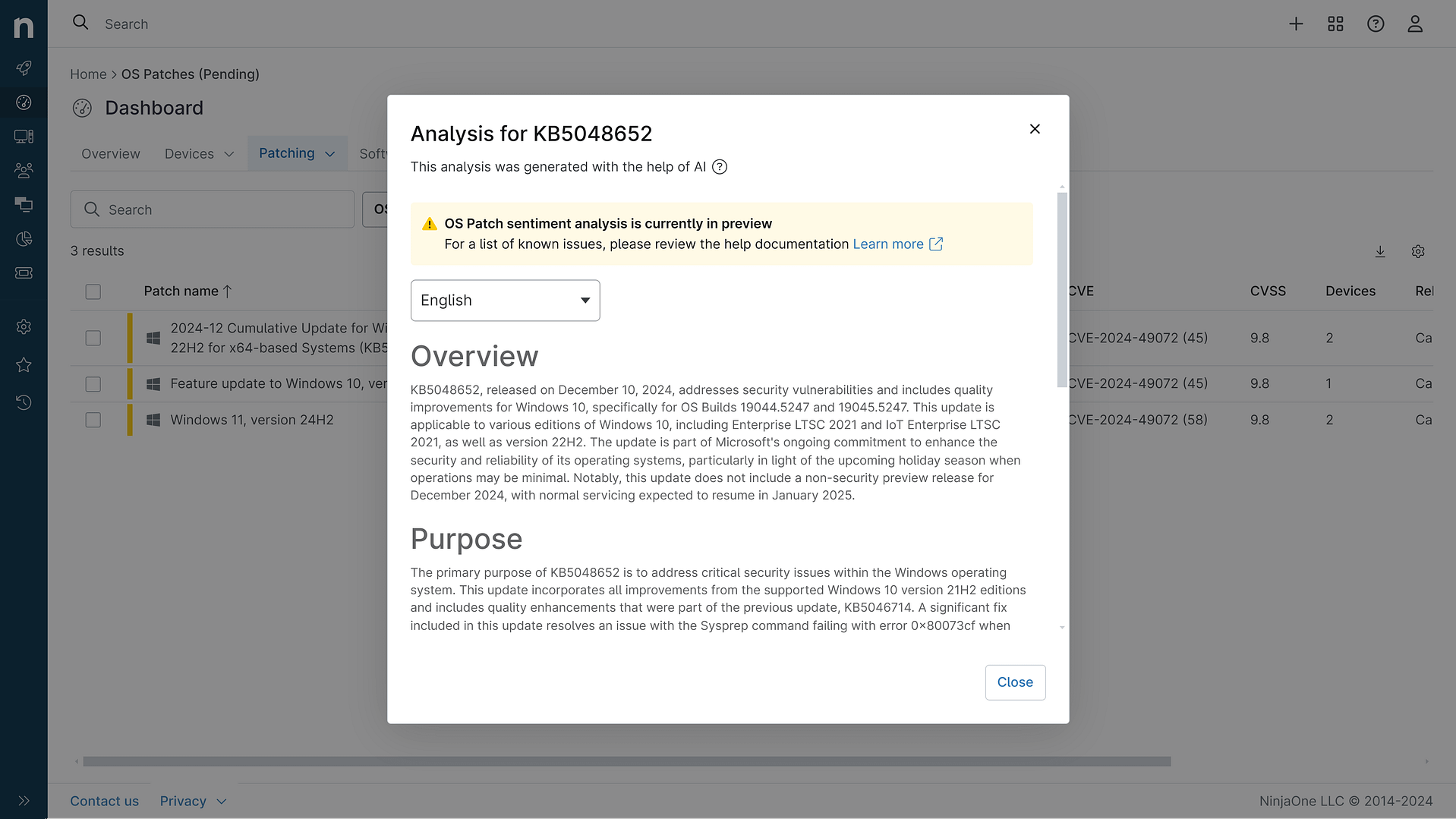KB5041020: Overview with user sentiment and feedback
Last Updated December 23, 2024
Probability of successful installation and continued operation of the machine
Overview
The KB5041020 article details a cumulative update for the .NET Framework versions 3.5, 4.8, and 4.8.1, specifically targeting Windows 11 version 21H2. Released on July 9, 2024, this update addresses a critical security vulnerability identified as CVE-2024-38081, which could allow for elevation of privilege through remote code execution. The update not only enhances security but also includes various quality and reliability improvements aimed at optimizing the performance of the .NET Framework on supported systems. This cumulative update is part of Microsoft's ongoing commitment to maintaining the security and functionality of its software products, ensuring that users are protected against potential threats while benefiting from improved system performance.
General Purpose
The primary purpose of KB5041020 is to provide essential security updates and enhancements for the .NET Framework on Windows 11. This update specifically addresses a significant vulnerability that could allow attackers to execute arbitrary code with elevated privileges. In addition to the security fix, the update includes various improvements that enhance the overall reliability and performance of the .NET Framework. Users can expect a more stable environment for applications that rely on these frameworks, as Microsoft continues to refine and secure its software offerings. The update is automatically distributed through Windows Update, ensuring that users receive the latest protections without needing to take manual action.
General Sentiment
The general sentiment surrounding KB5041020 appears to be cautious but acknowledges the necessity of the update. While the security improvements are welcomed, the introduction of breaking changes related to the System.IO.Path.GetTempPath method has raised concerns among developers and IT professionals. Some users express frustration over the potential impact on existing applications that may rely on the previous behavior of this method. However, the importance of addressing the critical vulnerability is emphasized, leading to a mixed sentiment where security is prioritized, but the implications of the changes are also recognized. Overall, users are advised to weigh the benefits of enhanced security against the potential need for code adjustments in their applications.
Known Issues
- The update introduces breaking changes to the System.IO.Path.GetTempPath method, affecting how temporary paths are resolved.
- The GetTempPath2 API may not be available on all Windows versions, leading to inconsistencies in behavior between SYSTEM and non-SYSTEM processes.
- Users may need to implement code changes to adapt to the new design of the GetTempPath method, which could disrupt existing applications.
- A temporary workaround is available to opt-out of the security fix, but Microsoft does not recommend this due to security risks.
Disclaimer: We take measures to ensure that AI-generated content is of the highest possible quality, but we cannot guarantee its accuracy and recommend that users do their own independent research. Generated on 2024-12-21 09:57 PM
